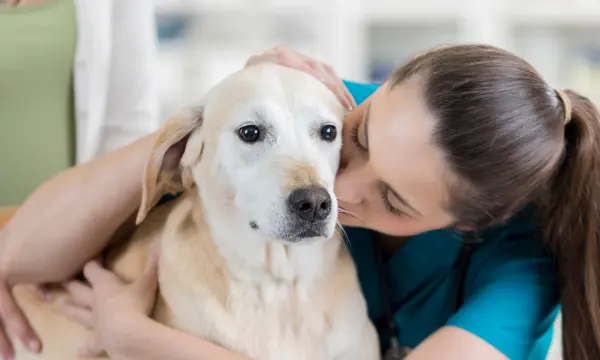
Leaving one’s beloved dog behind, even for a short period, can stir up a maelstrom of emotions for both the pet parent and the furry friend. It’s imperative to acknowledge and address the concerns that may arise when planning to leave your dog for an extended period, ensuring their well-being and mental health remain a top priority. Read more essential tips on dogs care on globalpets.info.
How can I leave my dog for 3 days safely?
Leaving your dog for three or more days necessitates meticulous planning to ensure their safety, comfort, and overall welfare. Here are essential tips to facilitate a smooth transition:
- Arrange Reliable Care: Entrust your dog to a responsible caregiver, whether it’s a trusted friend or family member, a professional pet sitter, or a reputable boarding facility. Ensure that the caregiver is familiar with your dog’s routine, dietary needs, medical history, and any specific instructions.
- Prepare Supplies: Stock up on an ample supply of food, treats, medication (if applicable), toys, bedding, and any other essentials your dog may require during your absence. Make a detailed list for the caregiver to follow to maintain consistency in your dog’s care.
- Maintain Routine: Dogs thrive on routine, so strive to maintain as much consistency as possible in their daily schedule, including feeding times, walks, play sessions, and bedtime rituals. Familiarity and predictability can help alleviate stress and anxiety in your absence.
- Provide Comfort: Leave behind familiar items that carry your scent, such as clothing or bedding, to provide comfort and reassurance to your dog while you’re away. Additionally, consider leaving on soothing music or a TV show to provide auditory stimulation and mask any outside noises that may unsettle your dog.
- Stay Connected: Keep in touch with your caregiver via phone calls, video chats, or messages to receive updates on your dog’s well-being and address any concerns promptly. Knowing that you’re still connected can offer peace of mind to both you and your furry friend.
- Emergency Plan: Prepare for the unexpected by providing your caregiver with emergency contact information, including your vet’s details and any pertinent medical history. Discuss contingency plans for unforeseen circumstances to ensure your dog receives prompt attention if needed.
By implementing these strategies, you can depart with the confidence that your dog is in capable hands and will be well-cared for in your absence.
Do dogs get upset when you leave them for vacation?
The emotional response of dogs to their owner’s absence can vary significantly based on factors such as their temperament, past experiences, and the quality of care provided during the separation. While some dogs may exhibit signs of distress or anxiety when separated from their primary caregiver, others may adapt more easily to the temporary change in routine.
It’s essential to recognize that dogs form strong emotional bonds with their human companions and may experience a sense of loss or confusion when suddenly separated from them. Signs of distress may manifest as whining, pacing, excessive barking, decreased appetite, or changes in behavior.
However, with proper preparation, a supportive environment, and consistent care from a trusted caregiver, many dogs can adjust to their owner’s absence without significant distress. Providing familiar comforts, maintaining routine, and staying connected can help mitigate feelings of anxiety and reassure your dog that they are loved and cared for, even in your absence.
How long is it cruel to leave a dog alone?
The duration for which it is considered cruel to leave a dog alone largely depends on various factors, including the dog’s age, breed, health status, temperament, and environmental enrichment provided during their solitary hours. While dogs are social animals that thrive on companionship and interaction, they also possess varying degrees of independence and adaptability.
As a general guideline, leaving a dog alone for extended periods exceeding eight to ten hours on a regular basis can be detrimental to their physical and emotional well-being. Prolonged periods of isolation can lead to boredom, loneliness, anxiety, and behavioral issues such as excessive barking, destructive chewing, or separation anxiety.
It’s crucial for dog owners to prioritize their pet’s needs for socialization, mental stimulation, physical exercise, and companionship. If unavoidable circumstances require extended periods of absence, arrangements should be made to ensure the dog receives adequate care, enrichment, and companionship in the owner’s absence.
Engaging the services of a reliable pet sitter, enrolling the dog in daycare, or arranging for regular visits from a trusted friend or family member can help alleviate the negative impacts of prolonged solitude and ensure the dog’s well-being and happiness.
Does my dog think about me when I’m gone?
The depth of the bond between a dog and their owner often leads to speculation about whether dogs possess the cognitive capacity to think about their human companions when they’re apart. While dogs may not conceptualize time or engage in abstract thoughts in the same way humans do, there is evidence to suggest that dogs form attachments to their owners and experience emotions such as love, affection, and longing.
Studies have shown that dogs exhibit behaviors indicative of missing their owners when separated, such as eagerly greeting them upon their return, displaying signs of excitement or distress when detecting their scent, or seeking out items that carry their owner’s scent for comfort.
Furthermore, dogs have demonstrated the ability to recognize and respond to familiar faces, voices, and scents, indicating a level of cognitive awareness and emotional connection with their human companions.
While it’s unlikely that dogs engage in conscious thoughts about their owners in the same manner as humans do, their behaviors and reactions suggest a profound emotional bond and attachment that transcends physical presence. As such, it’s reasonable to assume that dogs may indeed think about their owners when they’re apart, longing for their return and eagerly anticipating their reunion.
In conclusion, departing from your dog for an extended period necessitates careful consideration and preparation to ensure their well-being and emotional stability. By implementing essential tips for safe separation, acknowledging and addressing potential distress, and fostering a supportive environment, you can depart with confidence, knowing that your furry friend is in good hands and eagerly awaiting your return.



